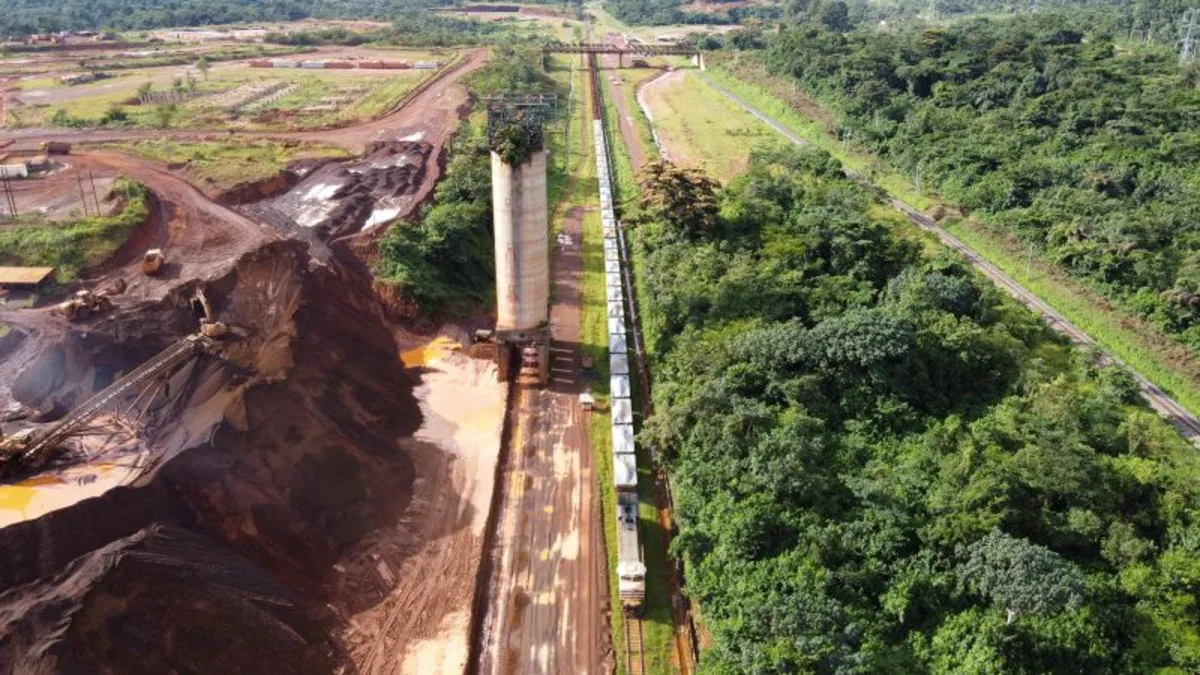
This week, the White House hosted a summit focused on African leaders, but with a notable twist: only five countries from the continent were invited to participate. US President Donald Trump held a working lunch in Washington, DC, on Wednesday, bringing together the presidents of Mauritania, Guinea-Bissau, Liberia, Senegal, and Gabon. The discussions centered on “commercial opportunities,” as highlighted by a White House official in a statement to CNN.
The White House official elaborated that this summit was organized because President Trump believes that African nations present incredible commercial opportunities that can benefit both the American populace and their African partners. The lunch, held in the prestigious State Dining Room, aimed to deepen diplomatic relations and advance mutual economic goals between the US and selected African nations.
Despite the summit being labeled a “high-level” meeting, it is noteworthy that significant African economies such as South Africa, Nigeria, Egypt, and Ethiopia were absent. These nations are part of the BRICS alliance, a group of emerging economies that includes Brazil, India, and rivals of the US, namely Russia and China. The absence of these larger economies raises questions about the intentions behind the summit, particularly in light of potential tariffs imposed by Trump on BRICS nations for their support of “anti-American” policies.
During the meeting, the five African leaders expressed their gratitude to Trump, urging him to invest in their countries and tap into their abundant natural resources. Trump, in turn, responded positively to their flattery, stating, “I didn’t know I’d be treated this nicely. This is great. We could do this all day long.”
According to Christopher Afoke Isike, a professor of African politics at the University of Pretoria, Trump’s selection of attendees reflects a strategy to counter Chinese and Russian influence in Africa. Isike described the invited nations as “low-hanging fruit,” noting that they are not aligned with BRICS and thus easier targets for US engagement.
China currently stands as Africa’s largest bilateral trading partner, while Russia has significantly increased its presence on the continent as a key supplier of military equipment. This summit is not the first instance of Trump engaging with African leaders; in 2017, he hosted a similar gathering with nine African heads of state, including leaders from Nigeria and Ethiopia, emphasizing Africa's vast business potential.
In his second term, Trump appears focused on Africa’s mineral wealth, aiming to challenge China’s dominance in accessing critical minerals in the region. His approach advocates for a transactional policy that exchanges US aid for strategic investments. The recent peace agreement between Rwanda and the Democratic Republic of Congo highlights this strategy, allowing the US to potentially access mineral rights within the region.
US Secretary of State Marco Rubio has also indicated a shift away from traditional humanitarian aid, emphasizing that future US investments must align with an “America First” foreign policy. The Trump administration has cut numerous USAID programs, imposing “reciprocal” tariffs on various African nations that it claims have trade deficits with the US.
The chosen nations—Gabon, Guinea-Bissau, Mauritania, Senegal, and Liberia—despite being smaller economies, are rich in resources including oil, gas, gold, iron ore, and rare earth elements. Gabon’s President Brice Oligui Nguema highlighted this mineral wealth during the summit, urging the US to engage in mutually beneficial partnerships.
Furthermore, these West and Central African countries serve as key departure points for migrants heading to the US. The increasing influx of African migrants at the US southern border has drawn attention, with numbers rising significantly from 2022 to 2023, particularly among nationals from Mauritania and Senegal.
Dakar-based journalist and political analyst Mamadou Thior emphasized that the leaders of these nations must navigate their discussions with the White House astutely, given Trump's business-oriented mindset. The absence of USAID means that these nations need to establish new cooperative frameworks with the US that prioritize their interests while aligning with Trump's transactional approach.
As the White House considers a larger African leaders’ summit later this year, Isike suggests that this meeting signifies a pivotal shift from traditional aid to a focus on strategic, commerce-driven engagement. This approach intends to foster economically self-reliant African partners while countering the influence of China and Russia on the continent.